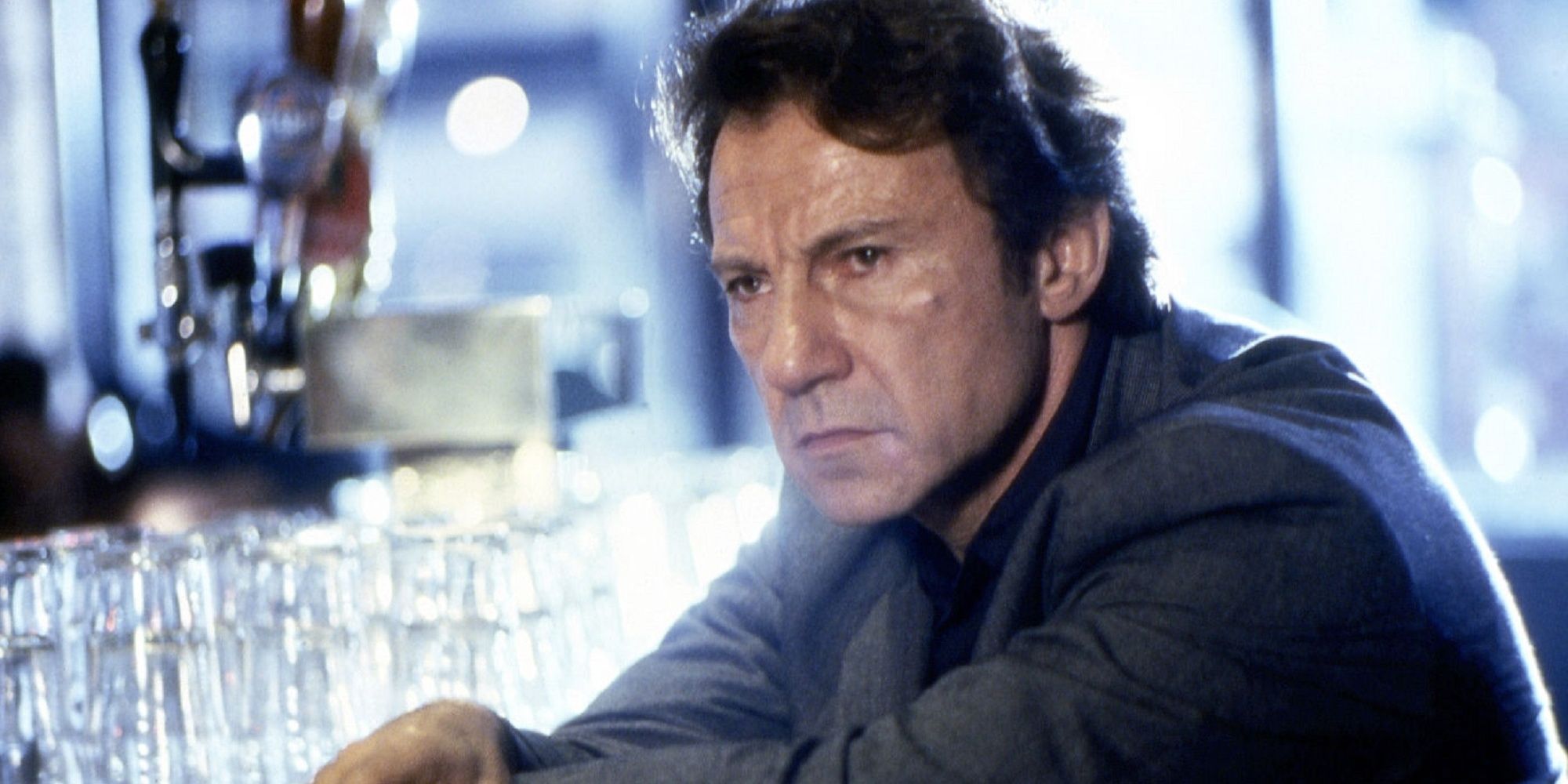Across more than five decades, Harvey Keitel has delivered performances that are raw, wounded, volatile, and often unforgettable. He’s best known for playing tough guys, cops, criminals, and sinners. But within that typecast is a remarkable emotional range: Keitel can be brutal or tender, grizzled or devout, menacing or mournful.
Sometimes he’s the anchor. Sometimes he’s the grenade. Either way, his presence always crackles. The following ten films are showcases for how powerful restraint, rage, and vulnerability can be when they all co-exist inside the same character.
10
‘Ulysses’ Gaze’ (1995)
Directed by Theo Angelopoulos
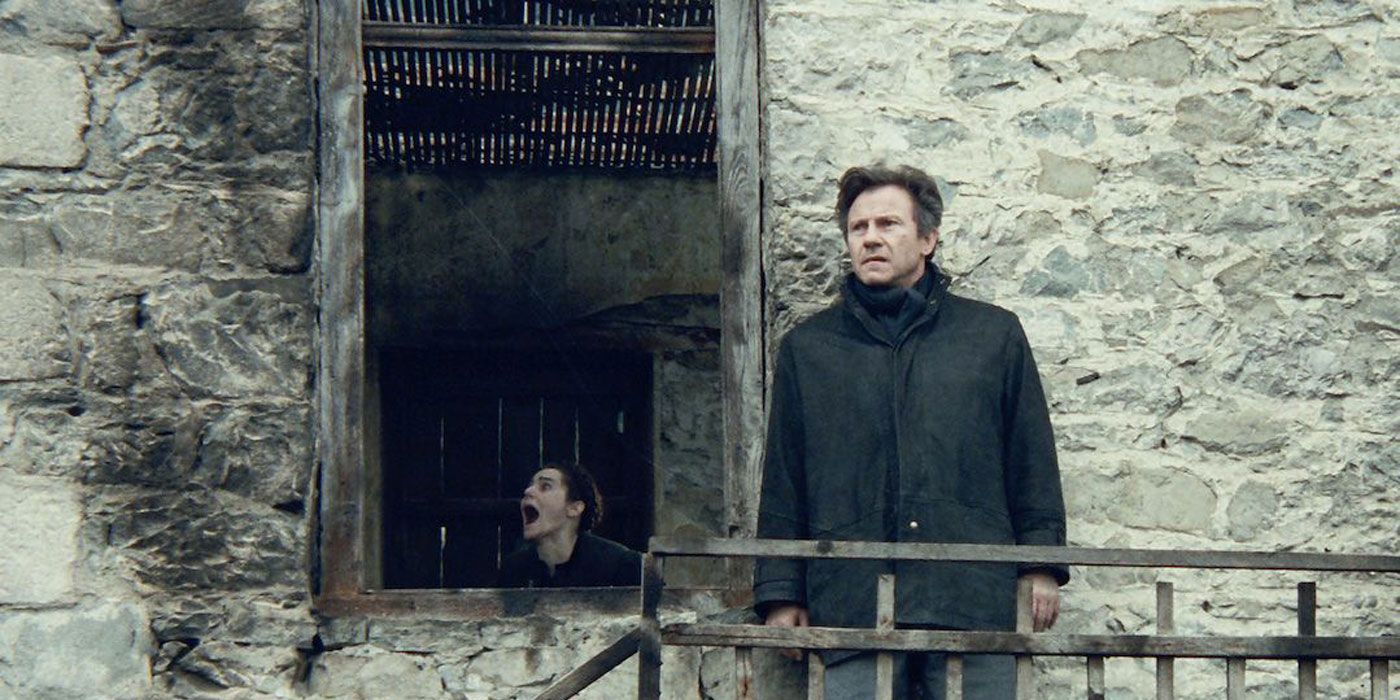
“There are no more journeys. There’s nothing left.” This movie takes elements of The Odyssey but transplants them to the 20th century. As a nameless Greek-American filmmaker returning to the Balkans in search of lost footage from the earliest days of cinema, Keitel becomes a vessel for grief, history, and haunting abstraction. This performance is a quiet unraveling, one carrying centuries of sorrow in a single stare. He rarely speaks, but his face becomes a landscape, one where exile, identity, and longing all collide.
Theo Angelopoulos‘ camera drifts like memory, capturing border crossings, empty cities, and ghosts of war. The film is dense, poetic, and difficult, but Keitel holds it together with gravity and grace. It’s his most spiritual performance, and arguably his most enigmatic. This is a story that resists easy answers. Ulysses’ gaze certainly isn’t for everyone, but the right kind of viewer will definitely appreciate it.
9
‘The Last Temptation of Christ’ (1988)
Directed by Martin Scorsese
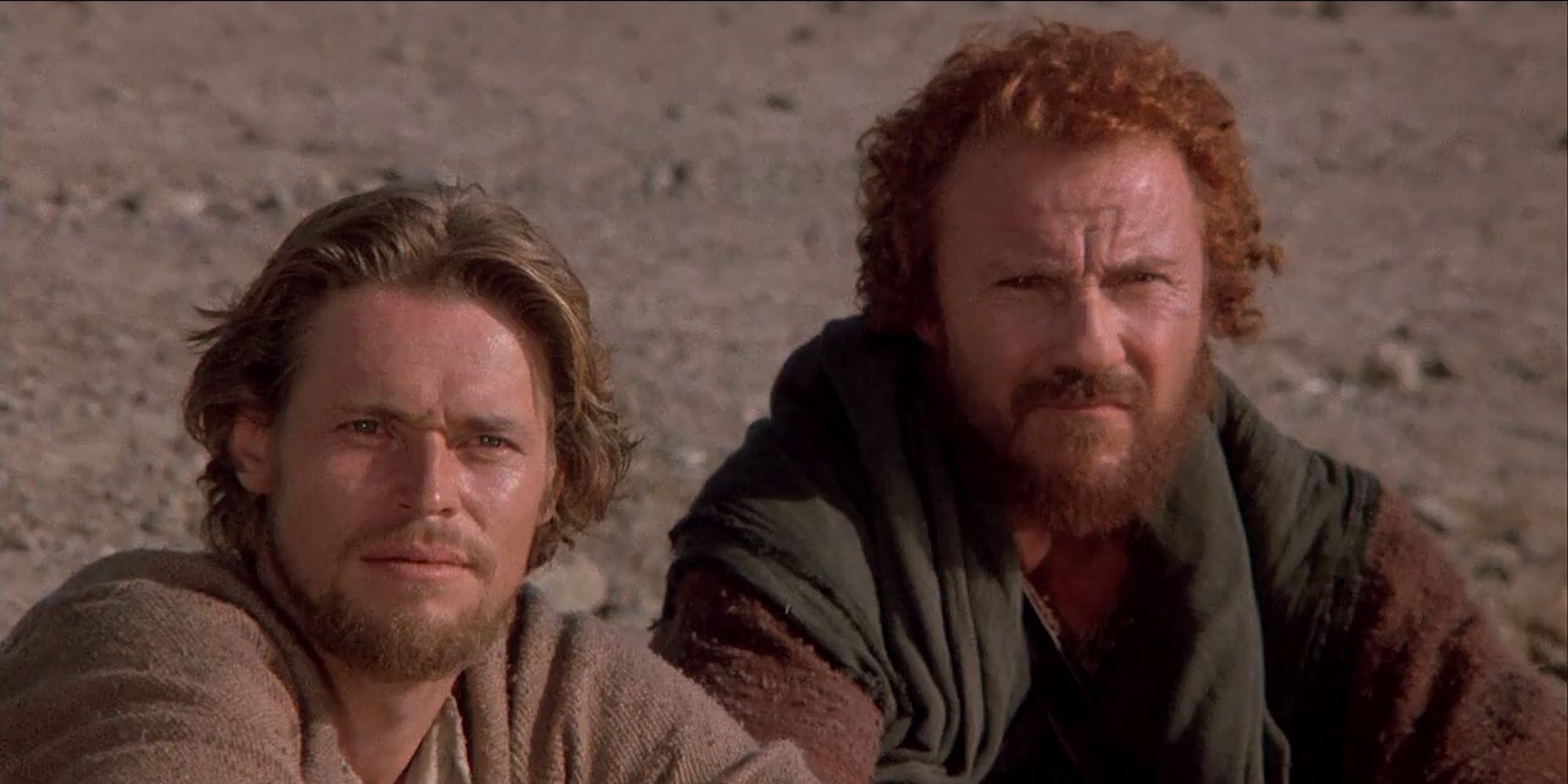
“God loves me. I know He loves me. I want Him to stop.” Casting Keitel as Judas Iscariot was always going to rattle cages. But in Martin Scorsese‘s radical, deeply human take on the Passion story, the decision is inspired. He portrays Judas as a man torn between loyalty, fury, and divine confusion. Keitel gives him a beating heart. He’s a man who doesn’t betray Christ out of malice, but out of anguished love. Rather than being jarring or out of place, the actor’s Brooklyn accent and raw energy bring a jarring immediacy to a story often buried in solemnity.
You feel his desperation, his awe, and his resentment. The film’s central idea, that Jesus (Willem Defoe) was a man wrestling with the weight of being more than a man, mirrors Judas’ own torment, and Keitel becomes a kind of emotional counterweight to the Son of Man. The chemistry between him and Dafoe is electric, painful, and intimate.
8
‘Smoke’ (1995)
Directed by Wayne Wang
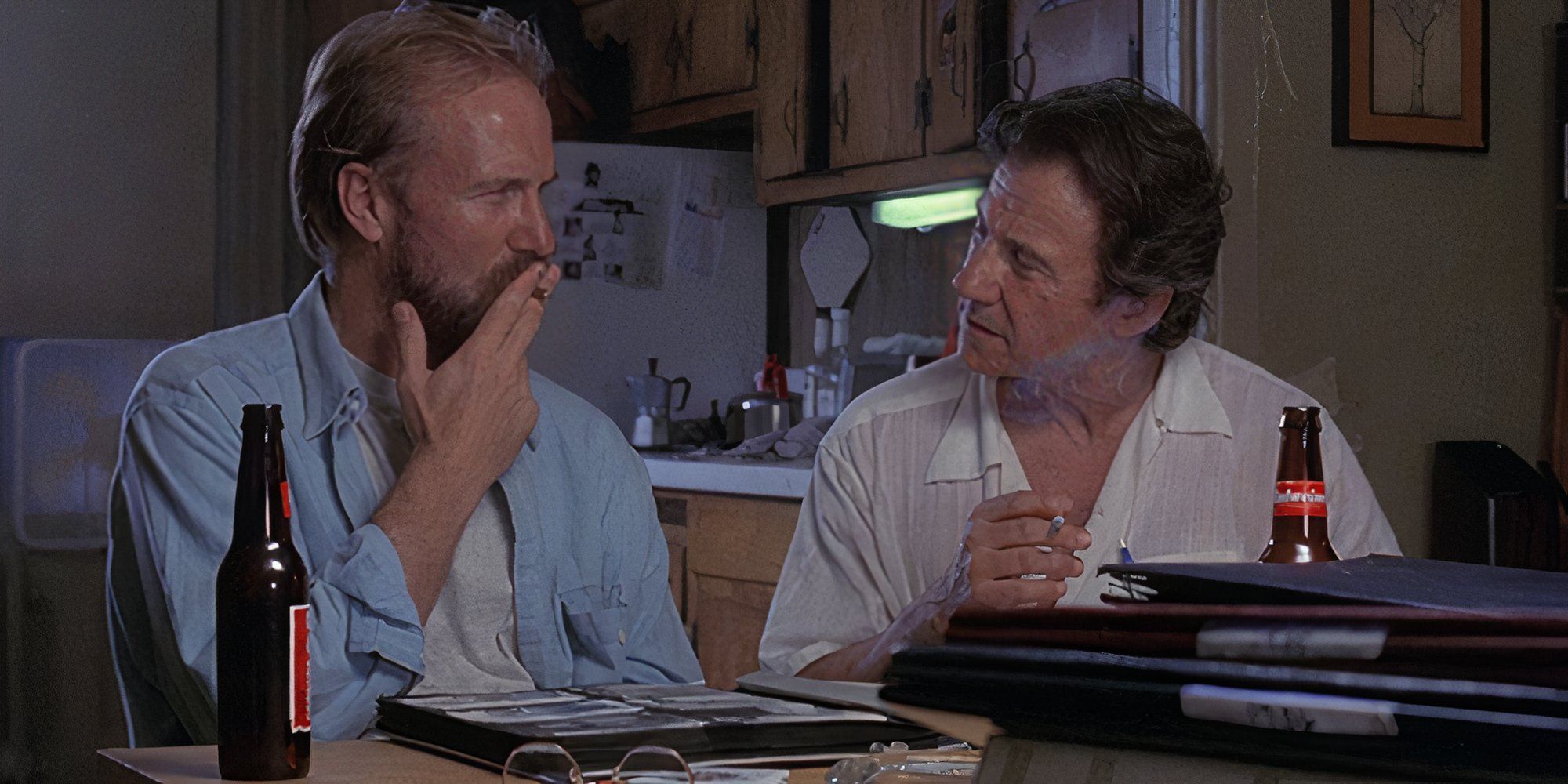
“If you can’t share your secrets with your friends, then what kind of friend are you?” In Smoke, Keitel trades bullets and bloodshed for something quieter but no less powerful: stories. He turns in one of his warmest, most lived-in performances here as Auggie Wren, a Brooklyn tobacconist with a camera and a poet’s soul. He’s still tough, still weathered, but the edges are softened by an unspoken sorrow. This is Keitel in reflective mode; less firebrand, more ember.
The film is built around conversations, coincidences, and the little rituals of city life. Keitel holds it together with patience and grace. His final monologue, a Christmas story that walks the line between truth and invention, is a masterclass in understated acting. You don’t know if it’s real. You don’t need to. What matters is that it feels real. Smoke proves what Keitel fans already know: he doesn’t need a gun in his hand to make a scene unforgettable.
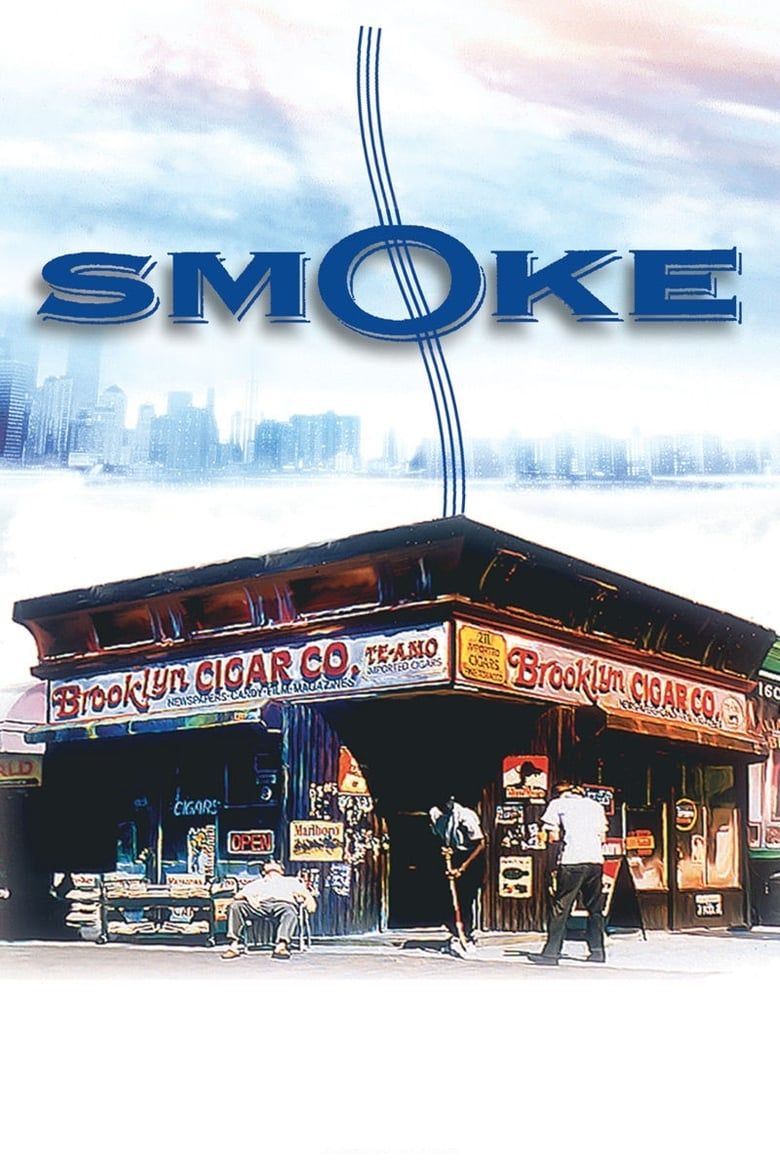
Smoke
- Release Date
-
June 9, 1995
- Runtime
-
112 minutes
7
‘Blue Collar’ (1978)
Directed by Paul Schrader
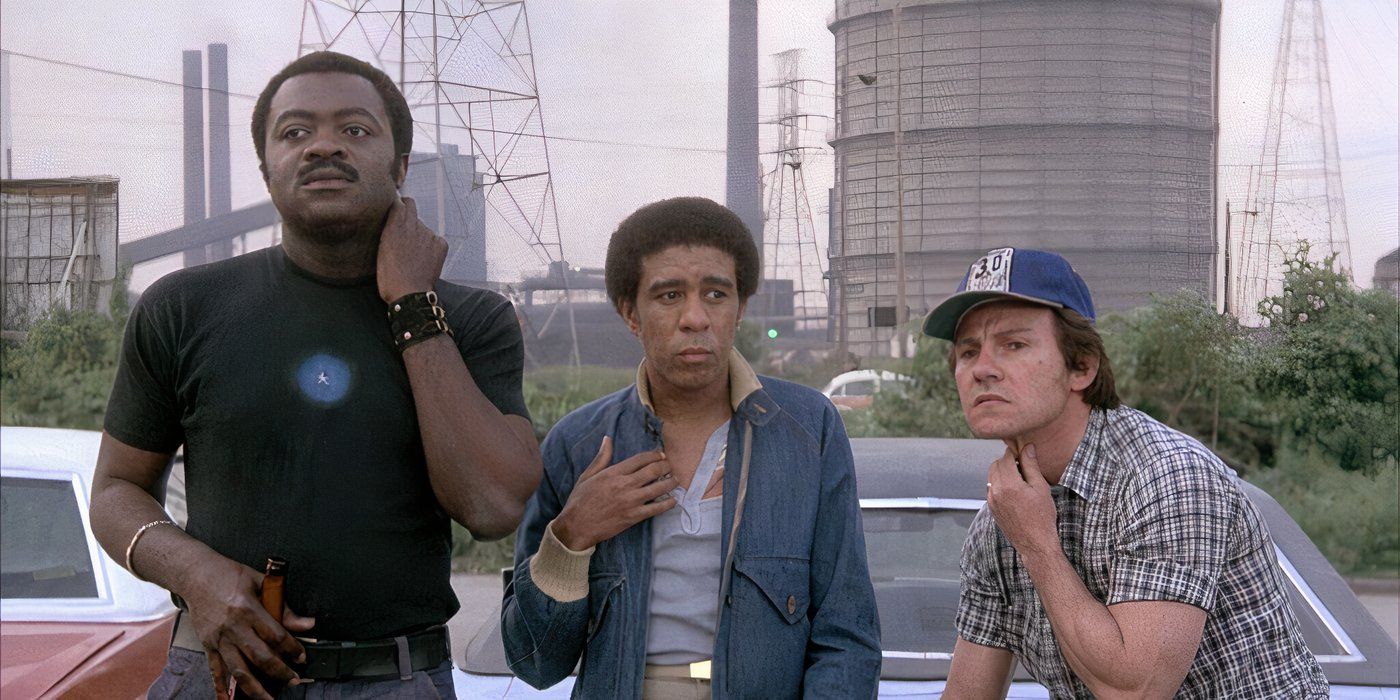
“They pit the lifers against the new boys, the old against the young, the Black against the white—everybody to keep us in our place.” Blue Collar is a powder keg, and Keitel is one-third of the explosive trio at its core, alongside Richard Pryor and Yaphet Kotto. As Jerry, a factory worker caught in a union scam gone violently wrong, Keitel offers something lean, nervous, and bitter. He’s not a leader or a villain. Just a man drowning in a system that’s been rigged from every angle.
The beauty of Keitel’s performance is how un-showy it is. He doesn’t chew scenery here. He listens, he simmers, and, when he finally explodes, it’s not theatrical but tragic. Paul Schrader (in his directorial debut) handles the material with urgency, and Keitel nails the feeling of someone whose ideals have been worn down to dust. You can feel his back breaking from decades of quiet exploitation. It’s one of his most underrated turns, and one of his most human.
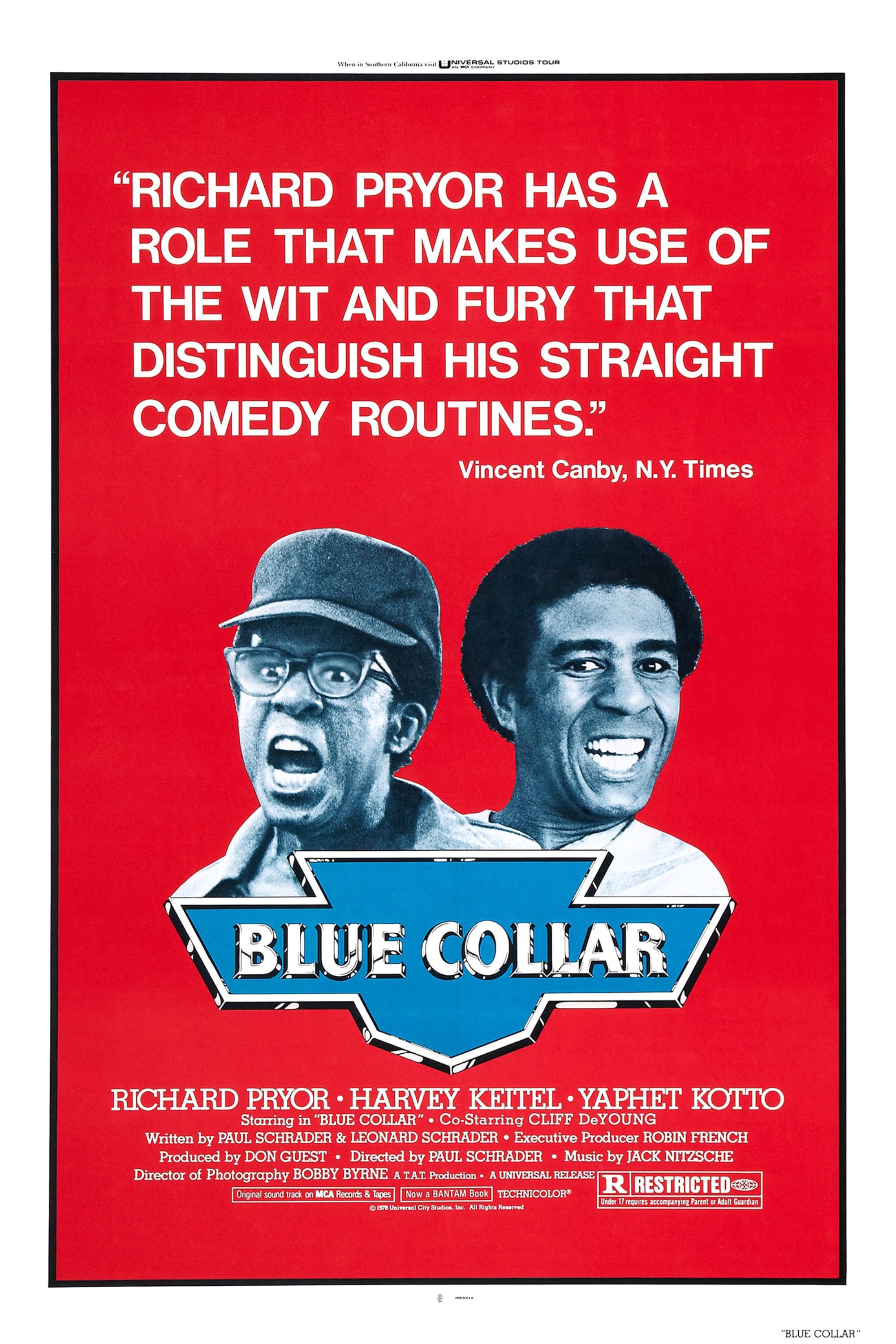
Blue Collar
- Release Date
-
February 10, 1978
- Runtime
-
114 Minutes
6
‘Thelma & Louise’ (1991)
Directed by Ridley Scott
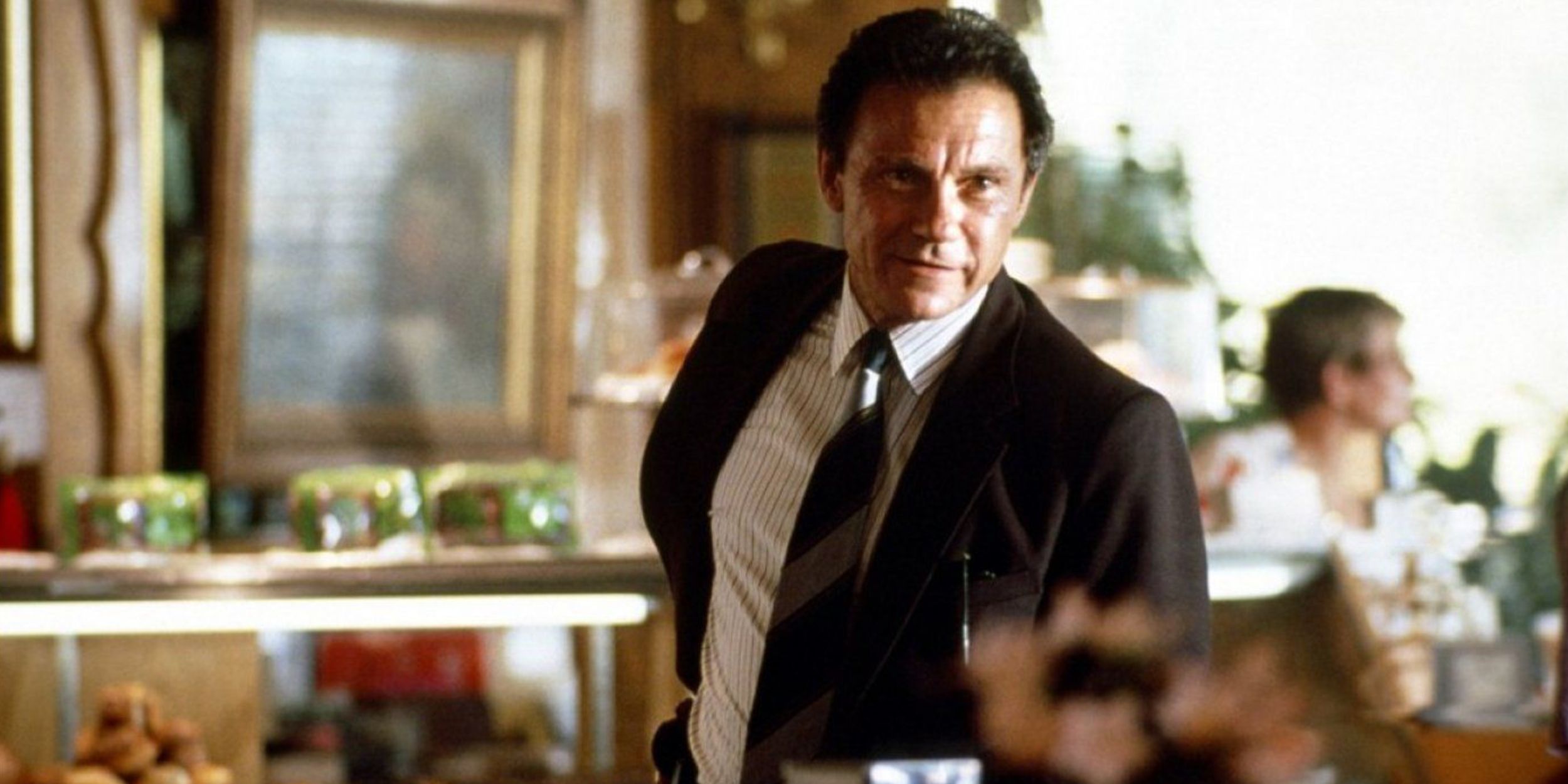
“You shoot off a guy’s head with his pants down, believe me, Texas is not the place you want to get caught.” In a film filled with outlaws, fugitives, and men who don’t listen, Keitel’s Hal is the outlier: a detective who does. And in Thelma & Louise, that makes him practically revolutionary. Keitel plays Hal with a quiet decency that feels rare in a world of betrayal and punishment. You can see the wheels turning behind his eyes, the effort it takes to empathize instead of just enforce.
There’s no bravado in the performance, just weariness, curiosity, and real moral conflict. He understands that he’s chasing two women who’ve been pushed to the edge by a world that never gave them a fair shot. And he’s the only man in the movie who doesn’t want to see them punished for it. It’s a small role, but Keitel makes every second count.
5
‘The Duellists’ (1977)
Directed by Ridley Scott
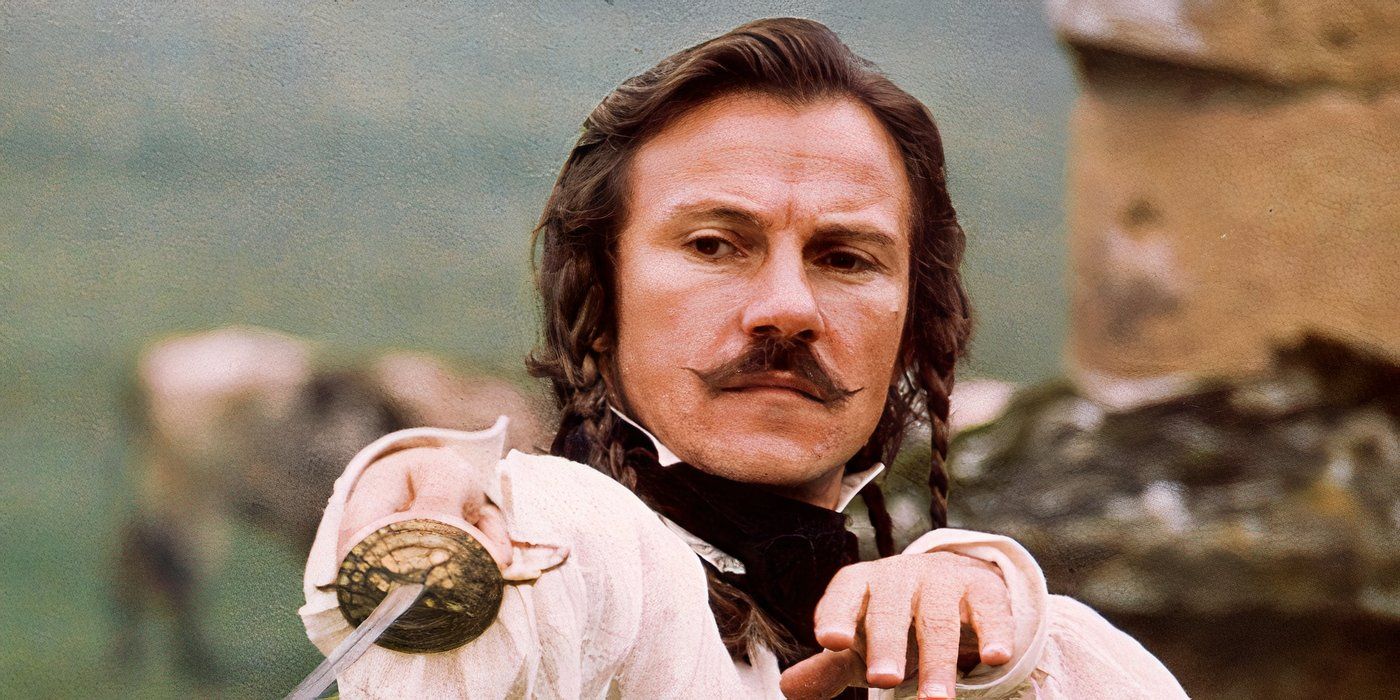
“Pride is an unusual thing, monsieur. It can mean a lot of things.” Ridley Scott‘s debut film is a period piece about men at war, but not with countries, with themselves. And no one personifies that more than Keitel’s Feraud, a French officer who challenges another man to duel over the pettiest of slights, and then refuses to let it go for decades. Keitel plays Feraud not as a villain, but as a creature of compulsion: violent, proud, strangely wounded. You never quite understand what drives him, but that’s the point. He doesn’t understand either.
He’s propelled by something primal and male and unspeakable. Keith Carradine‘s character moves on, grows up, builds a life. Feraud? He sharpens his sword and waits. The performance is pure intensity. No frills, no backstory, just relentless presence. Keitel feels dangerous, coiled. The film is gorgeous, philosophical, and deeply strange, and Keitel is one of its indispensable elements.
4
‘The Piano’ (1993)
Directed by Jane Campion
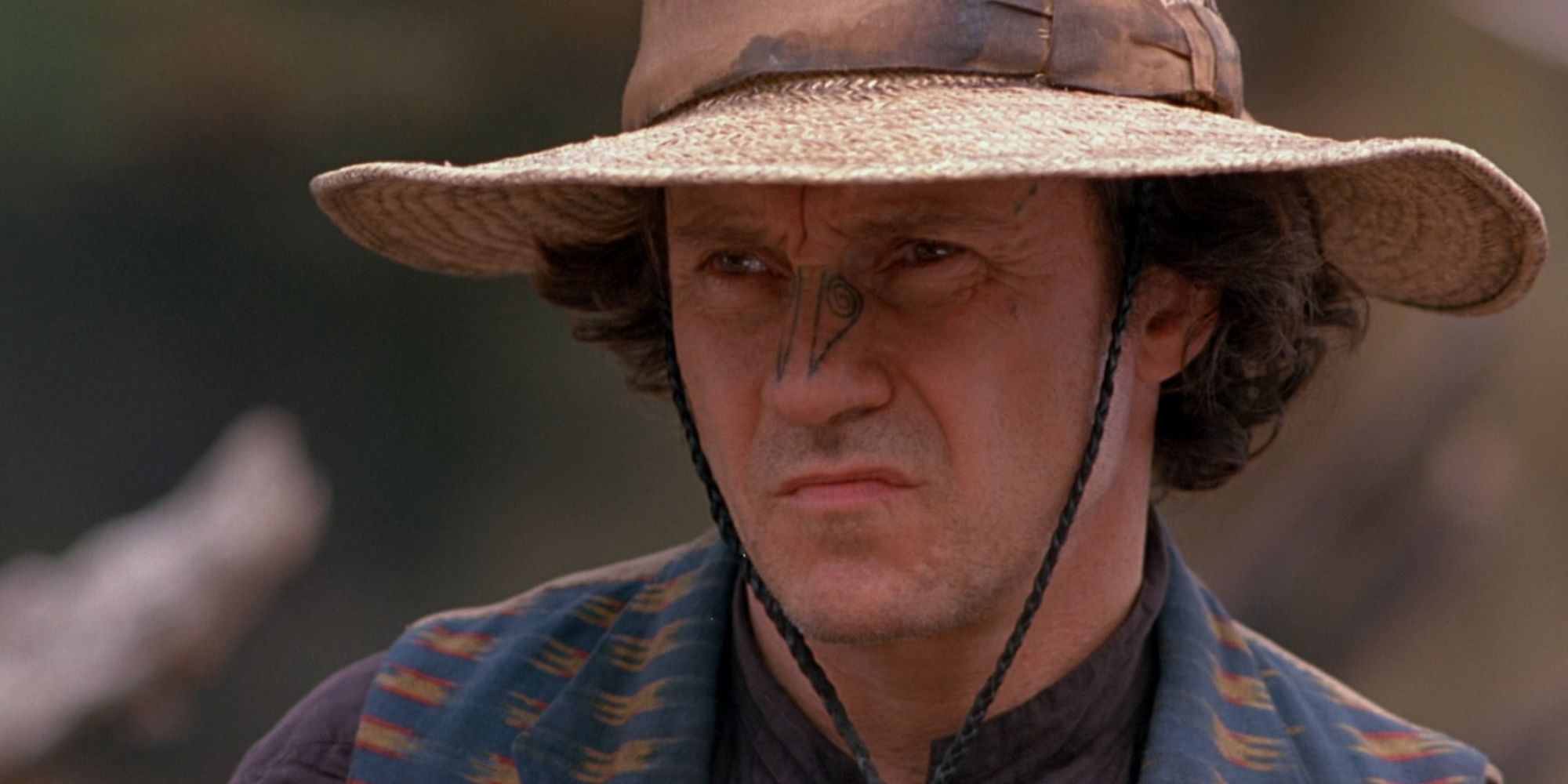
“See, I’ve learned to like silence. I’ve learned to keep myself company.” The Piano is a film about bodies; what they can say, what they can do, what they can’t undo. In it, Keitel plays George Baines, a white settler in 19th-century New Zealand who becomes obsessed with a mute woman (Holly Hunter). It’s a delicate, charged role, and Keitel gives a performance unlike anything else in his filmography. He plays Baines with unexpected vulnerability, softening his usual intensity into something tentative and wounded.
There’s sensuality here, yes, but also a kind of shame. He doesn’t quite know how to love, or even how to want. And that confusion makes the relationship with Ada both tender and deeply uncomfortable. Refreshingly, Jane Campion frames him not as a seducer, but as someone slowly trying to translate emotion into action; sometimes failing, sometimes learning. It’s a role that asks a lot of Keitel, and he more than rises to the occasion.
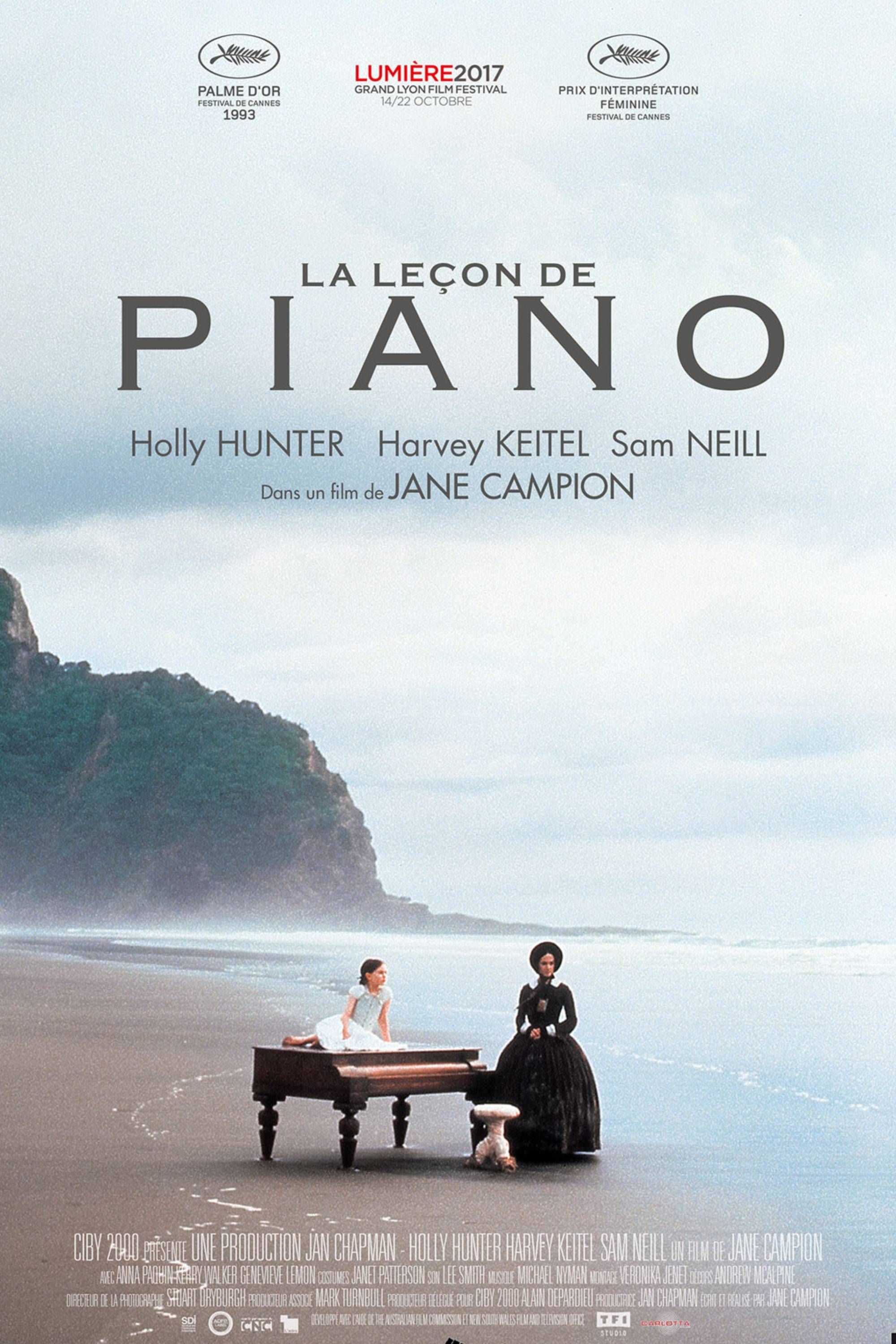
The Piano
- Release Date
-
November 12, 1993
- Runtime
-
117 Minutes
3
‘Mean Streets’ (1973)
Directed by Martin Scorsese
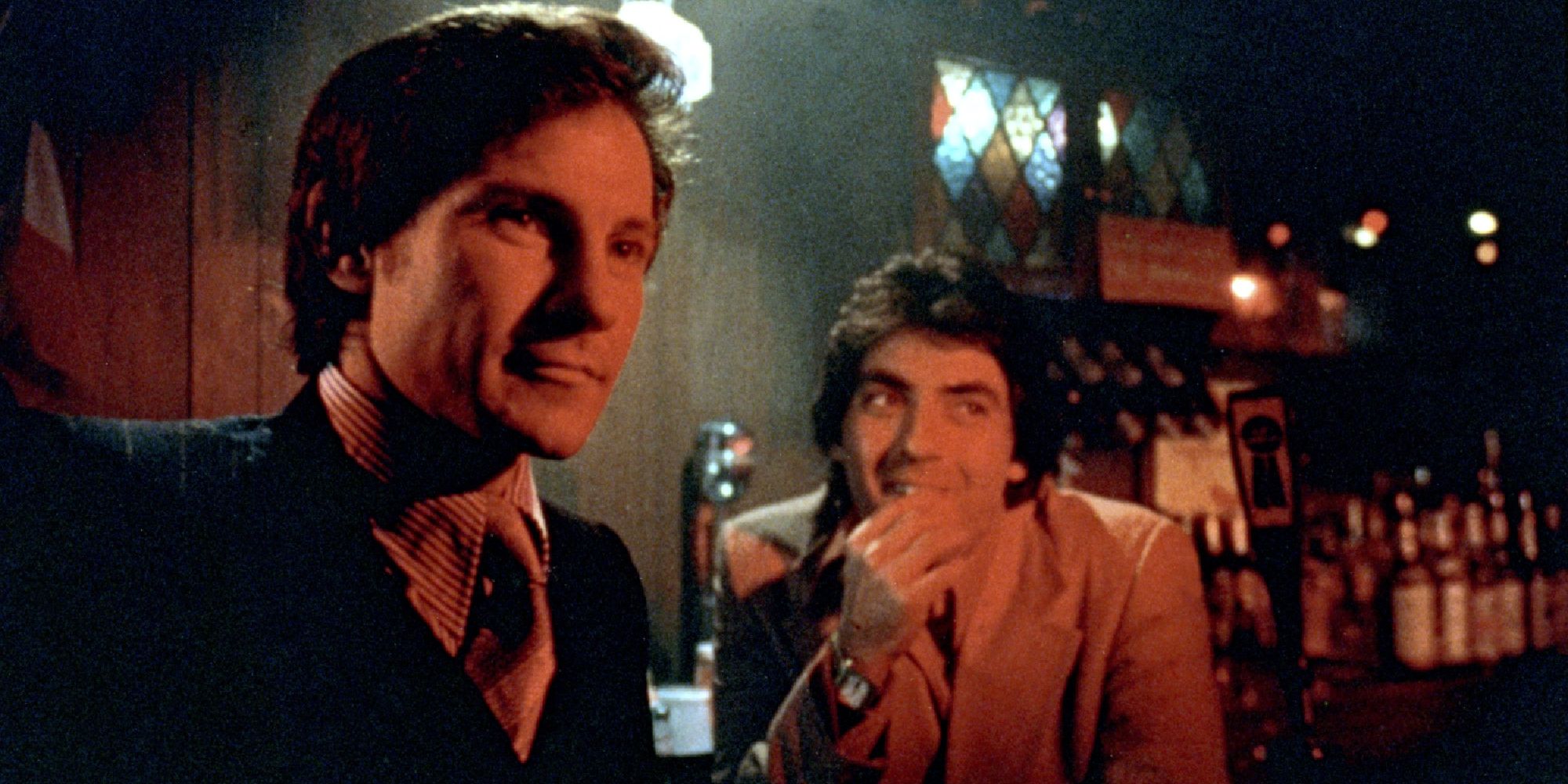
“You don’t make up for your sins in church. You do it in the streets. You do it at home.” Mean Streets is the movie that made Keitel a leading man and gave us our first glimpse of Scorsese’s chaotic, intimate vision of urban sin. As Charlie, Keitel walks a crooked line between guilt and loyalty, torn between the Church, his reckless friend Johnny Boy (Robert De Niro), and the streets that keep calling him back. Keitel doesn’t shout in this one. He broods. He wanders. He aches.
Every decision he makes seems like a compromise, every silence like a prayer he knows won’t be answered. The power of the performance lies in how internal it is. Charlie isn’t a traditional gangster or hero, just a man paralyzed by the gap between who he is and who he wants to be. Overall, Mean Streets is raw and rambling and full of life, and Keitel is its bruised conscience.
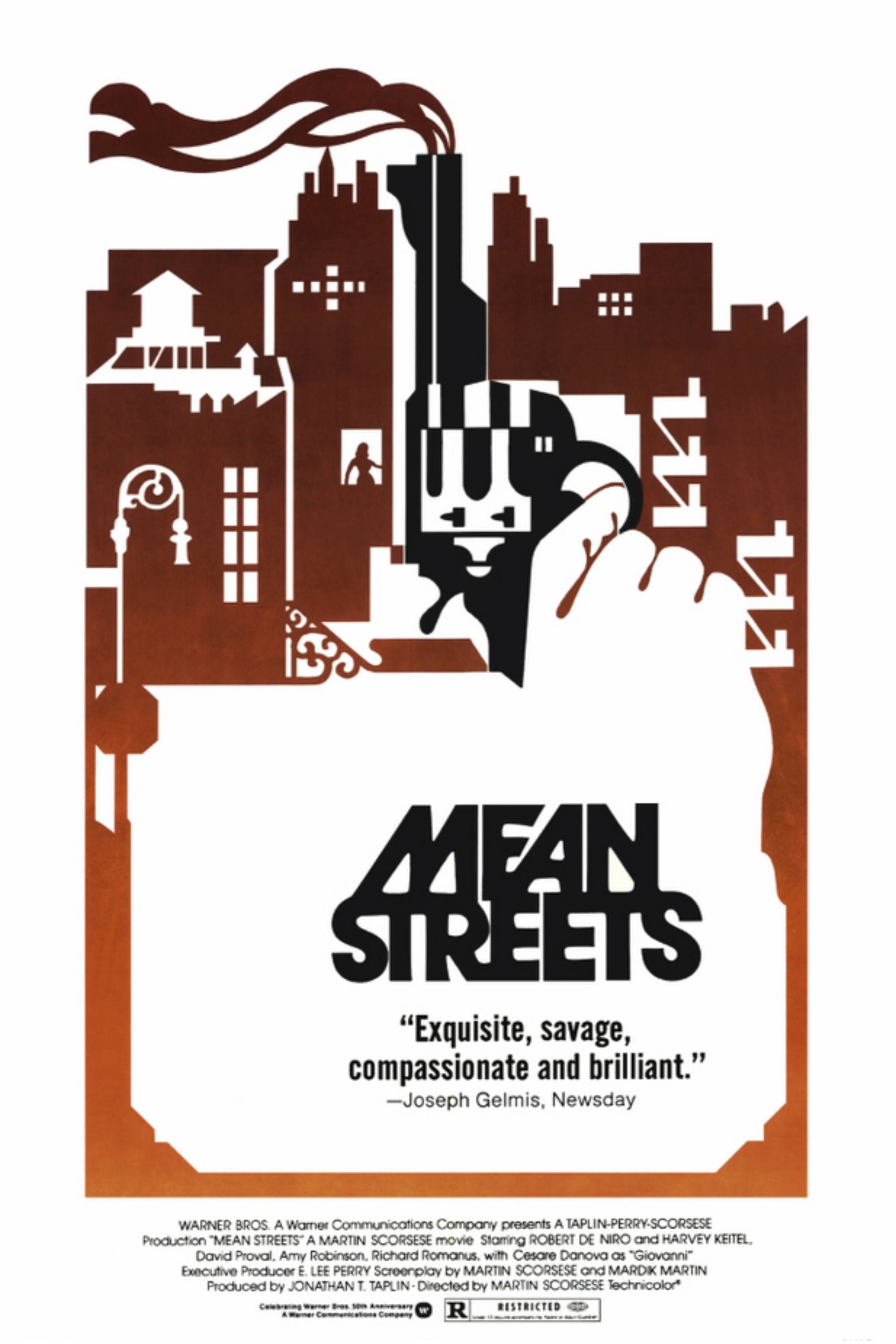
Mean Streets
- Release Date
-
October 14, 1973
- Runtime
-
112 Minutes
2
‘Reservoir Dogs’ (1992)
Directed by Quentin Tarantino
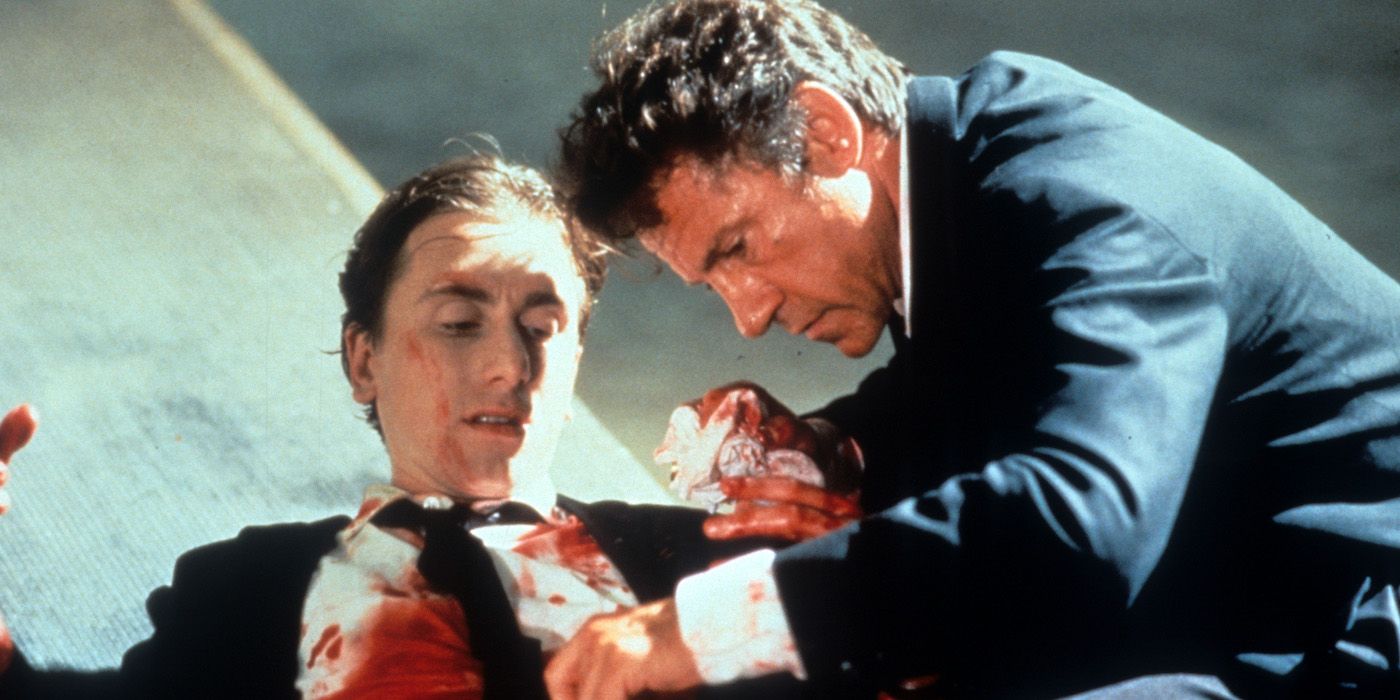
“You shoot me in a dream, you better wake up and apologize.” There’s a reason Keitel gets top billing in Reservoir Dogs. As Mr. White, he’s the soul of the movie, the only one trying to hold together a heist gone to hell with something resembling loyalty. While other characters crack wise, scream, or bleed out, Keitel grounds the chaos. He’s the emotional center of a film that’s otherwise built on mistrust and bravado. His chemistry with Tim Roth is especially heart-wrenching, turning what could’ve been a nihilistic bloodbath into something surprisingly tragic.
Unlike pretty much everyone else in the movie, Mr. White believes in something. Not honor, exactly, but connection. That someone can deserve to be protected, even in a room full of liars and thieves. Keitel plays the part with quiet authority and growing desperation, shifting between fatherly concern and explosive fury without missing a beat. Terrific stuff.
1
‘Bad Lieutenant’ (1992)
Directed by Abel Ferrara
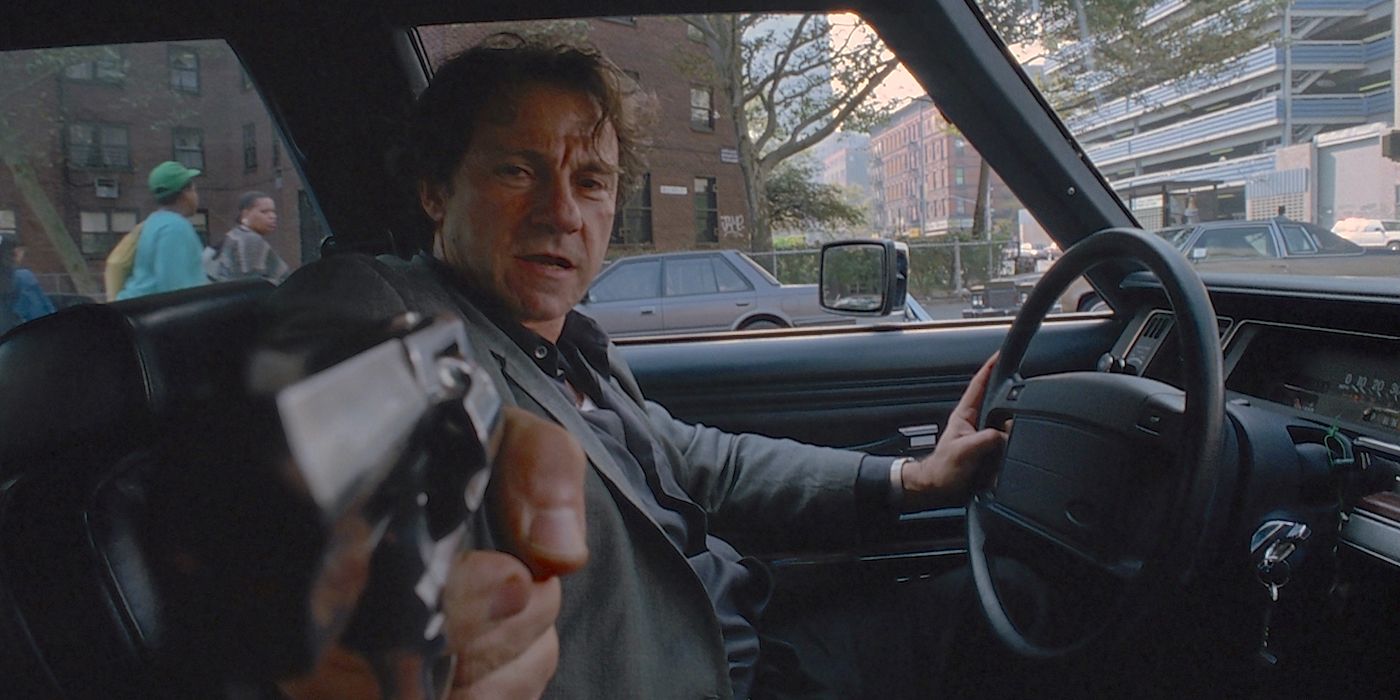
“Forgive me. Please forgive me.” This is Keitel unfiltered. Raw, ugly, spiritual, broken. In Bad Lieutenant, he plays a cop so consumed by guilt, addiction, and self-hatred that he’s barely holding together a human form. The plot (such as it is) follows him through a downward spiral of drugs, sex, theft, and ultimately, a quest for grace. But it’s Keitel’s performance that defines everything. He weeps. He rages. He screams into the void. And yet somehow, it never feels indulgent or melodramatic.
Abel Ferrara strips everything down to one man’s torment, and Keitel lays himself bare, literally and emotionally. The result is one of the most fearless performances of the ’90s, one that makes you actively recoil. There’s no redemption arc, just a howl of despair punctuated by flickers of divine light. In a career full of intensity, this is the one where he burns through the screen. It’s his finest work.
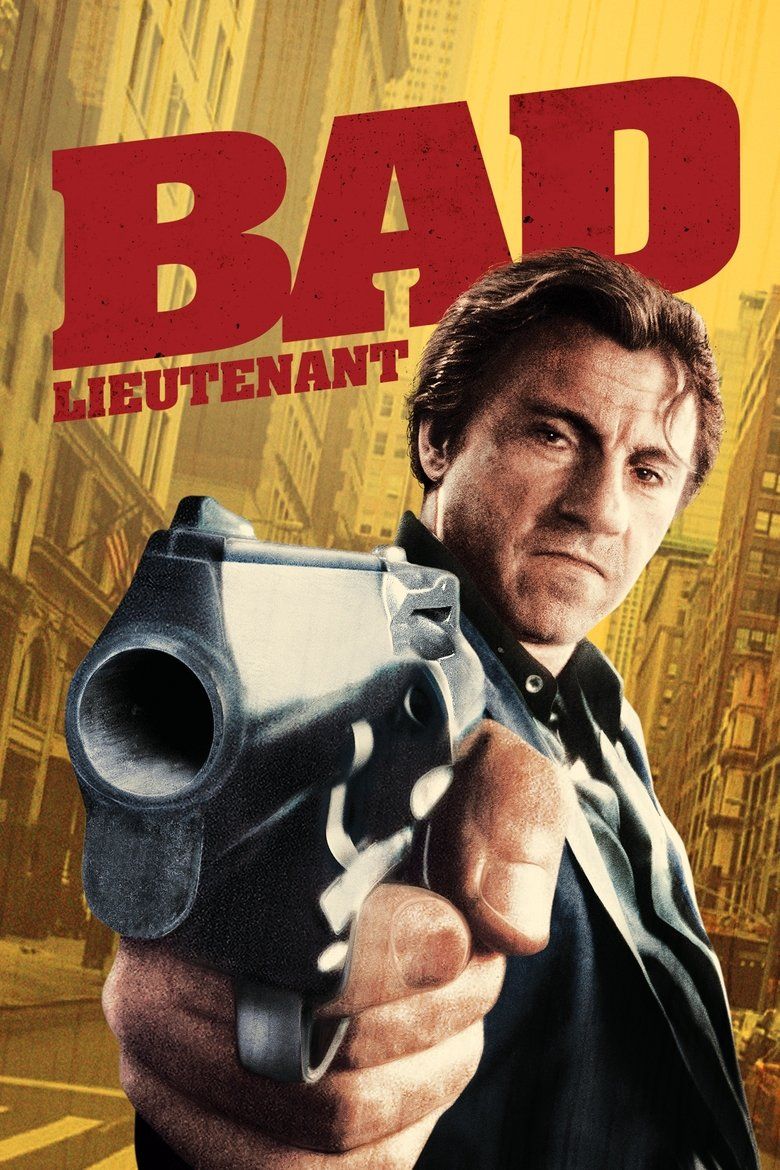
Bad Lieutenant
- Release Date
-
November 20, 1992
- Runtime
-
96 minutes
-

-

Brian McElroy
LT’s Son #1
-

Frankie Acciarito
LT’s Son #2
-

NEXT: Sue Me, but I Think a Remake of These 10 Classics Would Actually Be Great

